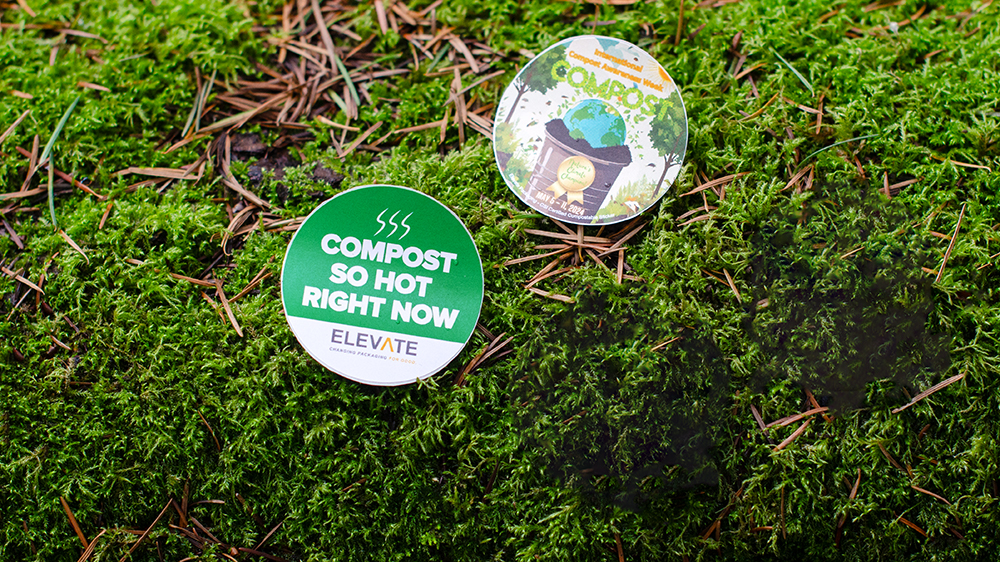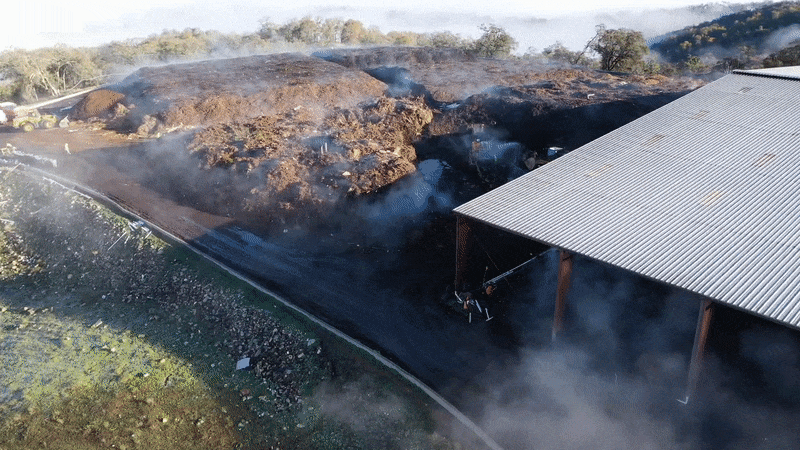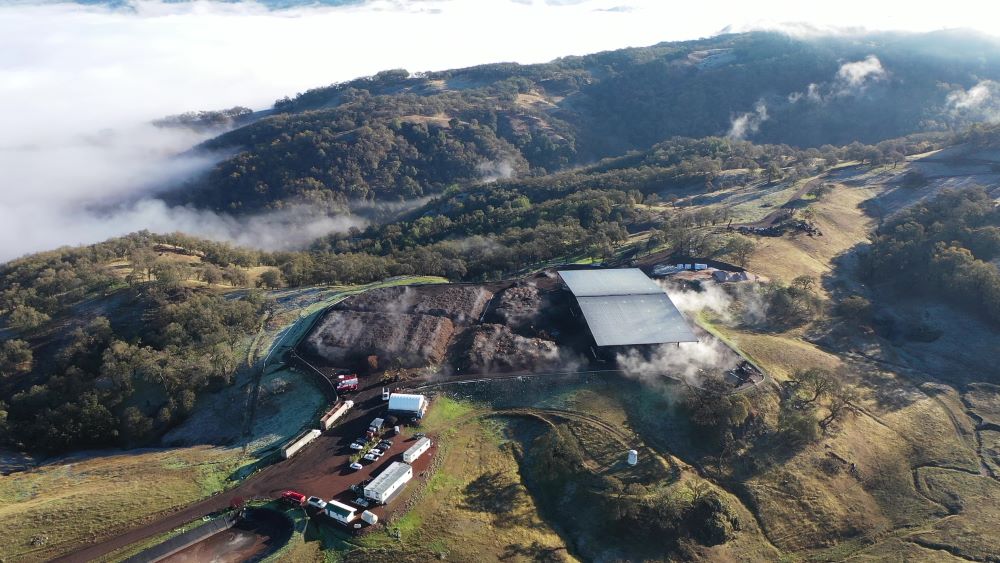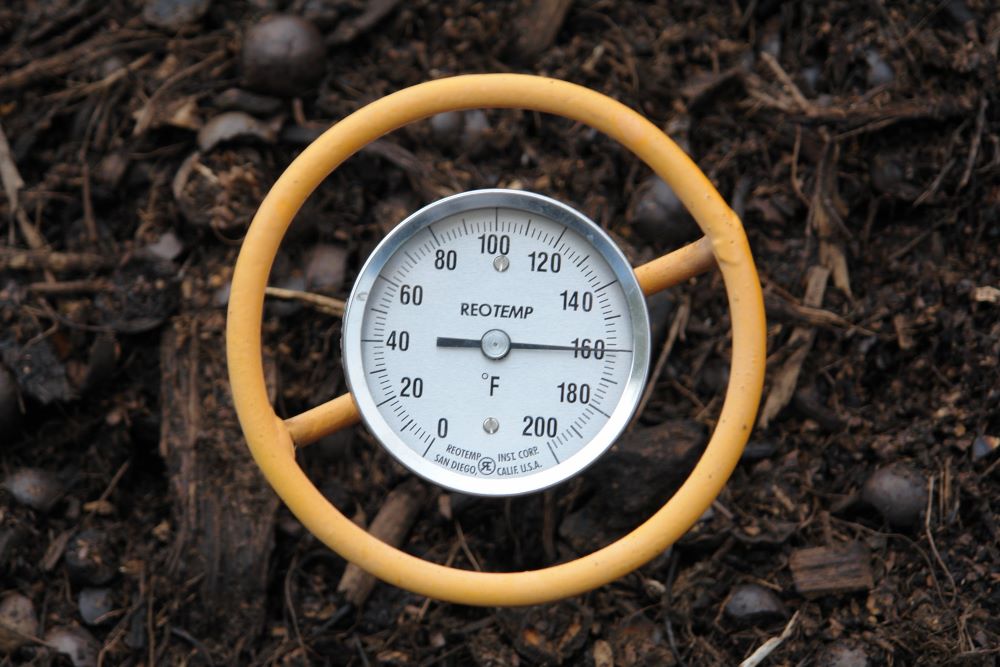Recent Posts
- Home
- Elevate Blog
- Effects of Temperature on Composting
Effects of Temperature on Composting
Posted on

We’ve previously discussed how successful composting requires the correct ratio of nitrogen to carbon materials, plus oxygen and moisture. Temperature is also an important part of the composting process.
The multitude of microorganisms that feed on organic matter in an aerobic compost pile create heat as part of the decomposition process, with internal temperatures reaching as high as 150F! The temperature of a compost pile is influenced by several factors, including the size of the pile, how wet it is, how well it's aerated, and the ratio of carbon to nitrogen. And let's not forget about the ambient temperature, whether you're composting indoors or out.
As the compost heats up, the water content evaporates. Picture this happening on a cool morning – the water vapor rises and condenses into tiny droplets, creating the mesmerizing sight of steam rising from your compost pile.
Thank you to our friends at Cold Creek Compost for these incredible shots of steam rising from their Aerated Static Piles!

View of steam rising from compost piles at Cold Creek Compost
Depending on method, local climate, moisture levels, and pile size, compost can get pretty hot!
Large, specially managed compost piles (as part of a biomeiler, or compost heater) can even create high enough temperatures to heat water or supply radiant heat to buildings and greenhouses. Compost hot tub anyone?
Why Does Compost Get Hot?
The microorganisms present in compost use organic materials for growth and reproduction. As they consume and digest the carbon rich materials they release heat, which then gradually warms up the compost pile.
As temperatures rise, new microorganisms move in, each group specializing in the unique conditions of their temperature range. Aerobic composting transitions through three distinct phases, each characterized by different microbes working at different temperatures:
Psychrophilic 28-55°F
Psychrophiles are organisms found at low temperatures. Psychrophilic microbes get the compost pile started, but as it heats up they are replaced by Mesophiles.
Mesophilic 50-115°F
Mesophiles are responsible for most of the decomposition in a home compost pile. They prefer moderate temperatures and are happiest at around 98°F
Thermophilic 115-160°F
Thermophiles thrive at high temperatures. Commonly known as “Hot Composting”, this temperature stage is the most efficient for producing compost quickly.

Aerial view of steam rising from compost piles at Cold Creek Compost
Effects of Temperature on Composting
Good temperature management can tell composters how fast material is composting, when compost is ready, and whether there are any problems. Regular temperature checks allow us to gauge the speed of decomposition and identify any hot or cold spots within the pile.
Higher temperatures in a compost pile speed up the overall process and create high quality compost, but the wrong temperature can slow the process or kill off beneficial microbes. Temperatures between 90-140°F are usually considered ideal. At temperatures of 130-135°F compost is hot enough to efficiently kill off most pathogens, fly larvae, and weed seeds.
The center of the pile heats up and decomposes more quickly than the outer edges. The increased microbial activity means that oxygen at the center of the pile depletes quickly. The oxygen needs to be replenished for the microbes to continue their work! Turning compost adds oxygen back into the pile and keeps compost temperatures within the ideal range.
A compost pile may not heat up if it is too wet, too dry, or the wrong size. It will also not heat up properly if it is lacking nitrogen, oxygen, or bacteria. Compost that is too cold may become smelly and take a much longer time to break down.

Temperatures that are too high (over 160°F) will begin to kill off beneficial microbes and the composting process will stop. Turning or aerating compost before it exceeds 140°F can prevent it from getting too hot.
When the temperature drops back below 70°F, it's a sign that the composting process is nearly complete. If the compost is adequately moist and turning doesn't cause temperatures to rise, it's likely that the composting process is complete.
Composting is a fascinating biological process, and understanding the temperature dynamics is key to success! By carefully managing temperature throughout the composting process, we can optimize decomposition, minimize potential issues, and ultimately produce nutrient-rich compost for our gardens and the environment.
*Originally posted Dec 2022, updated Feb 2024.
 Loading... Please wait...
Loading... Please wait...



